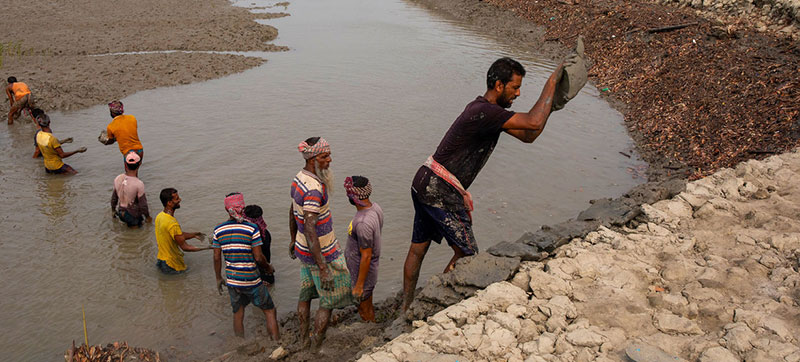 Disaster
Disaster
New York: Many developing nations remain unprotected against disaster, even though it is accepted that building community resilience has many benefits, beyond saving lives and livelihoods.
That’s the alert from UN Secretary-General António Guterres, who on Wednesday – the International Day for Disaster Risk Reduction – urged greater international solidarity for the many countries that are unable to protect themselves.
“Weak governance, growing poverty, biodiversity loss, collapsing ecosystems and unplanned rapid urbanization are all interconnected drivers of disaster risk”, he said in a video message for the day.
Just 24 hours advance warning of a storm or heatwave can reduce the damage by 30 per cent, but many low and middle-income countries don’t have adequate early warning systems.
“And when disaster strikes, weak health systems and infrastructure leave them even more vulnerable. Decades of development gains can be wiped out in an instant”, Mr. Guterres added.
To meet the challenges of the 21st century and safeguard lives, the UN chief asked the world to reduce systemic risks: “Left unaddressed, they aggravate the intensity and frequency of disasters and increase the need for humanitarian assistance.”
Global solidarity
For the Secretary-General, building resilience to climate change and reducing disaster risk is “vital to save lives and livelihoods, eradicate poverty and hunger and achieve the Sustainable Development Goals.”
He also highlighted the threat for Small Island Developing States, saying it is a question of survival amid warming oceans, rising seas, and intensifying storms.
Stressing the importance of international cooperation, Mr. Guterres said “it is about ensuring fair and equitable access to vaccines for everyone, everywhere; dramatically increasing funding and support for climate change adaptation and resilience building; and delivering on the Sendai Framework.”
The Framework was adopted in 2015, during the Third UN World Conference on Disaster Risk Reduction in Sendai, Japan, and outlines seven clear targets and four priorities for action, to prevent new and reduce existing disaster risks.
In 2021, the International Day focuses on “International cooperation for developing countries to reduce their disaster risk and disaster losses”, the sixth of the seven Sendai targets.
For the Special Representative of the UN Secretary-General for Disaster Risk Reduction, Mami Mizutori, “UN Member States were absolutely right to include international cooperation to developing countries as one of the seven targets.
“Only together can we make true progress towards a safer and more resilient planet”, she said.
Vaccines
The Director-General of the World Health Organization (WHO) also marked the International Day, asking governments everywhere to learn the lessons of the COVID-19 crisis, and respond better to future disasters.
In a video message, Tedros Adhanom Ghebreyesus said that “the pandemic has demonstrated how the consequences of health emergencies and disasters go far beyond the health sector and affect all segments of society.”
“Often, the communities most affected by disasters are those less equipped to deal with them”, he argued.
“The poor, migrants, Indigenous Peoples, and other marginalized communities are disproportionately impacted by health crises, including more doses and injuries, the loss of livelihoods and damage to critical infrastructure, including health facilities.”
He said the best defense against emergencies and disasters of all kinds, is a strong and resilient health system, which is why WHO is working with the UN Office for Disaster Risk Reduction and other partners to reduce risks in communities.
“The COVID-19 pandemic has caused so much loss, pain, and grief. But if we learn the lessons it's teaching us, we can together create a healthier, safer and more sustainable future”, Tedros concluded.
Support Our Journalism
We cannot do without you.. your contribution supports unbiased journalism
IBNS is not driven by any ism- not wokeism, not racism, not skewed secularism, not hyper right-wing or left liberal ideals, nor by any hardline religious beliefs or hyper nationalism. We want to serve you good old objective news, as they are. We do not judge or preach. We let people decide for themselves. We only try to present factual and well-sourced news.







